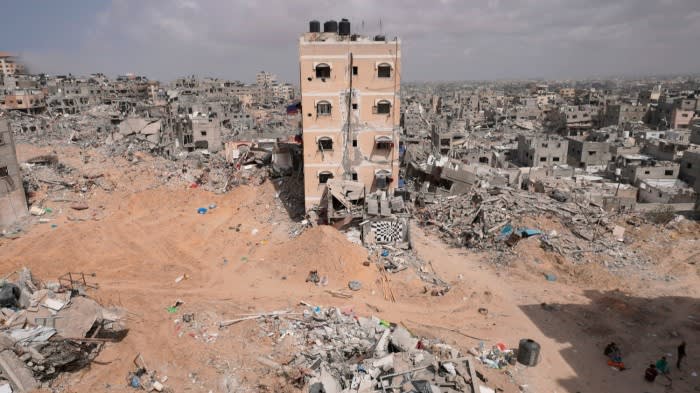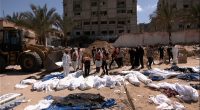
Stay informed with free updates
Simply sign up to the War in Ukraine myFT Digest — delivered directly to your inbox.
The writer is director-general of the Royal United Services Institute
A cursory review of the global security landscape can depress even the most cheerful among us. The Russian war against Ukraine just passed its two-year mark with no end in sight. Meanwhile, the hostilities between Hamas and Israel continue to play out, with the ever-present risk — as shown by last week’s tit for tat between Iran and Israel — that the conflict will spread around the Middle East.
Since the February 2021 coup in Myanmar, the civil war has deteriorated, with regime troops losing significant ground to various resistance militias and nearly 2mn people displaced. Sudan’s civil war has been under way for a year now, though the country has been in turmoil since the 2019 uprising against Omar al-Bashir. Several other countries — Ethiopia, Haiti, Libya, Syria and Yemen — are plagued by wars of attrition, humanitarian suffering and militia violence.
Yes, each situation is unique. But they also share certain characteristics: years of misrule and misappropriation of scarce resources, deep internal divides and state-directed violence against civilians. The conflicts are also exacerbated by external factors, including severe environmental stress and military interference by other countries.
In each case, a range of local and international actors have been trying to mediate and end the suffering. In the rare cases where an end might be in sight, discussions then shift to the difficult day after. At that point, three basic principles should be kept in mind.
First, for a transitional government to succeed, it will need to establish immediate control over security. If not, power vacuums lead to looting and criminality, as occurred after US military interventions in Panama and Iraq.
Having a visible civilian police presence on the streets is imperative not only to restore and maintain order, but to give the transitional government the breathing space and public support required in order to implement reforms. Security is also necessary to ensure that reconstruction can commence in a safe and co-ordinated manner.
The second lesson is to build back better. In the early stages of post-conflict reconstruction, enormous sums of money flood in from international development agencies, the private sector, diasporas and non-traditional funders. It is critical that transparent monitoring, co-ordination and accountability mechanisms are agreed upon in advance.
In too many cases (Afghanistan and Iraq come to mind), vast financial infusions have emboldened the wrong people, creating new factions and spoilers. It should be possible, even before the cessation of hostilities, to build the capacity and networks of local NGOs to help ensure financial integrity for the “day after” period.
Finally, the most important lesson may seem the most obvious, but it is often ignored: ensuring that local actors lead all governance, reconstruction, administration and security functions. In Bosnia, East Timor, Iraq and Kosovo, for example, international representatives assumed civilian government roles and foreign peacekeepers and police were put in charge of upholding security.
Even if it is politically expedient for international actors to play such roles, it undermines the stated goal of democracy promotion. It is also incredibly expensive to deploy international civilians and soldiers to war zones.
Numerous rationales have been offered for getting internationals to play these roles: there is too much hatred between local communities, which have never had democracy before; only a neutral power can rebuild trust and so on. These arguments are reminiscent of those used during the colonial era.
The role for international actors in the aftermath of any conflict should be behind-the-scenes and advisory. A recent successful example occurred during the counter-Isis coalition launched in September 2014. The US-led coalition (with the UK playing a substantial role) adopted a strategy of “by, with, through and for local forces”. This approach empowered and built trust in the local security forces and transitional government.
In the cities of Nova Gorica and Gorizia, situated on both sides of the Slovenian-Italian border, decades of division, resentment and tensions were eventually overcome by creative approaches to shared sovereignty (such as joint cultural, sports and infrastructure projects). Instigated by two visionary mayors in the 1960s, this process helped to rebuild trust between the two communities. In 2025, Nova Gorica and Gorizia will share the distinction of being the European Capital of Culture cities. The world needs more such success stories.
Read More: World News | Entertainment News | Celeb News
FT







